It’s complicated
Betrayal unforgivable for some, but others have invested too much time and effort to walk away from Facebook relationship
Advertisement
Read this article for free:
or
Already have an account? Log in here »
To continue reading, please subscribe:
Monthly Digital Subscription
$19 $0 for the first 4 weeks*
- Enjoy unlimited reading on winnipegfreepress.com
- Read the E-Edition, our digital replica newspaper
- Access News Break, our award-winning app
- Play interactive puzzles
*No charge for 4 weeks then billed as $19 every four weeks (new subscribers and qualified returning subscribers only). Cancel anytime.
Read unlimited articles for free today:
or
Already have an account? Log in here »
Hey there, time traveller!
This article was published 20/04/2018 (2197 days ago), so information in it may no longer be current.
For the last 14 years, Facebook has been the devil you know when it comes to social networking.
Other sites have trended, then fallen out of favour — MySpace, Neopets, Ello and Vine, to name a few — but the blue banner continues to beckon, “like” it or not.
Facebook promises umpteen connections with friends and family, but has consistently struggled to maintain public trust. In 2018, the iota of trust that’s left has all but eroded.
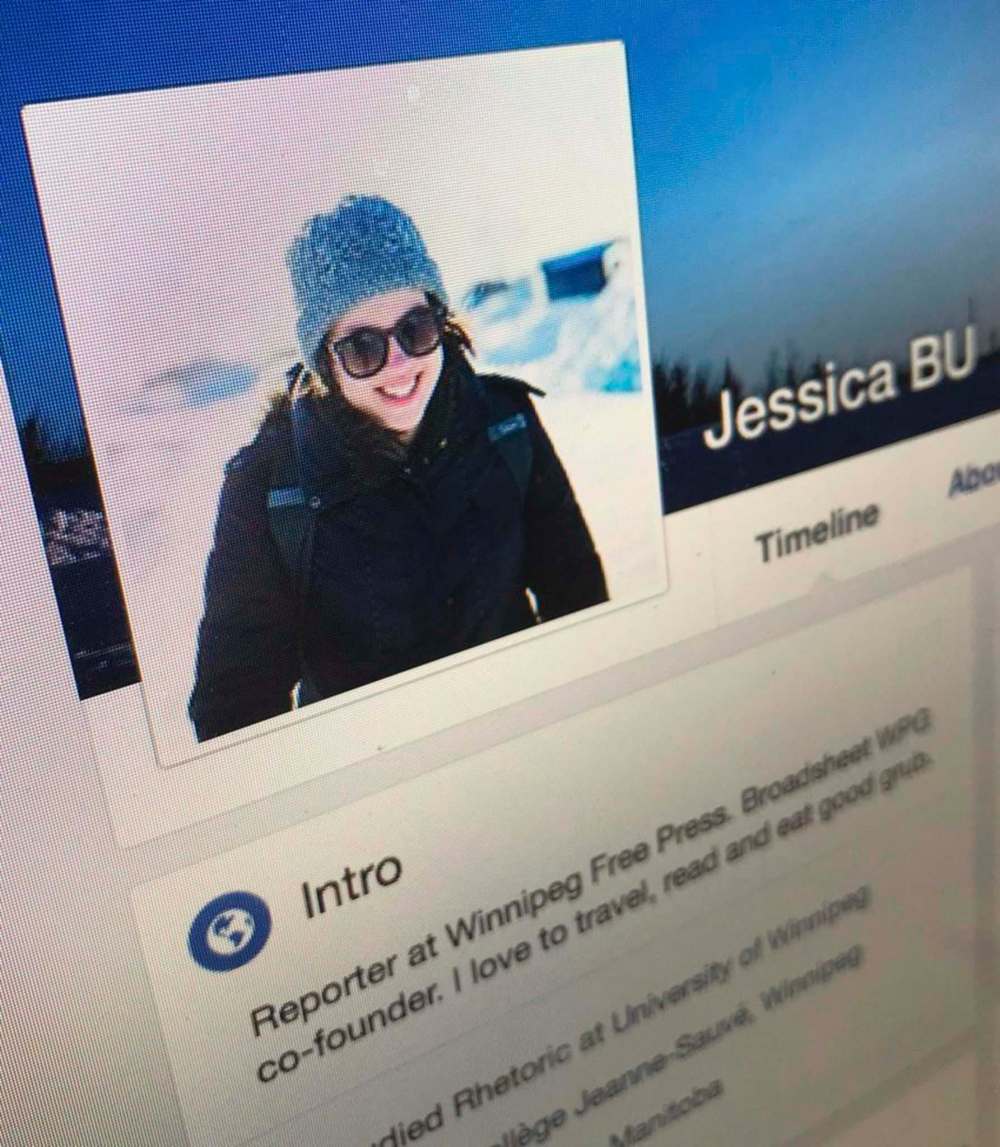
Founder Mark Zuckerberg testified at U.S. congressional hearings last week and was questioned about Facebook’s failure to protect users from data miners such as Cambridge Analytica, which targeted voters during the 2016 American election.
“We didn’t take a broad enough view of our responsibility and that was a big mistake. And it was my mistake and I’m sorry,” Zuckerberg, 33, said on Capitol Hill last week.
Though his latest apology made international headlines, for some of Facebook’s 2.2 billion users (19 million of whom live in Canada), it rang hollow.
Facebook Canada’s head of public policy Kevin Chan also testified and apologized before a Canadian parliamentary committee this week after it was discovered more than 620,000 Canadian Facebook users data was accessed by Cambridge Analytica.
Lory Gil, a tech journalist and deputy managing editor of iMore.com who lives in Sacramento, Calif., acknowledged Facebook’s revenue model is ad-driven.
“They deserve some of my information so that they can make some money off of me through sharing with advertisers,” Gil said. “That only makes sense. I just need to know what they’re doing with (the info) — how they’re sharing or who they’re sharing it with, so that I can make those kind of decisions for myself as to whether or not I feel comfortable with it.

“We give our information to them, but they don’t have to do anything to tell us what they’re doing with it behind that closed door. And that’s just an unfair exchange of our information for their service.”
Recently, many users have downloaded their Facebook data (through a function in the settings menu at the top right side of the browser) to see just how much information the social network saves.
Downloading your personal data archive doesn’t stop Facebook from accessing it, nor does it show you all the parties who have been privy to your records. But the archive offers perspective on your online footprint and how many digital crumbs you’ve scattered through years of haphazard scrolls and clicks.
Chineze Ofodile, a Winnipeg-based fitness trainer and customer service rep, said she hesitates to post anything on Facebook, describing herself as “naturally suspicious” of social media.
Her profile doesn’t have her real name, phone number or overly identifying personal details, she said. But her Facebook archive had the whole nine yards.
“Every single status update you ever put. Every page you interacted with. Every single picture, video, your friend list, people you accepted, people you declined, people you deleted from your Facebook. Every single message you’ve ever sent. It’s insane,” she said.
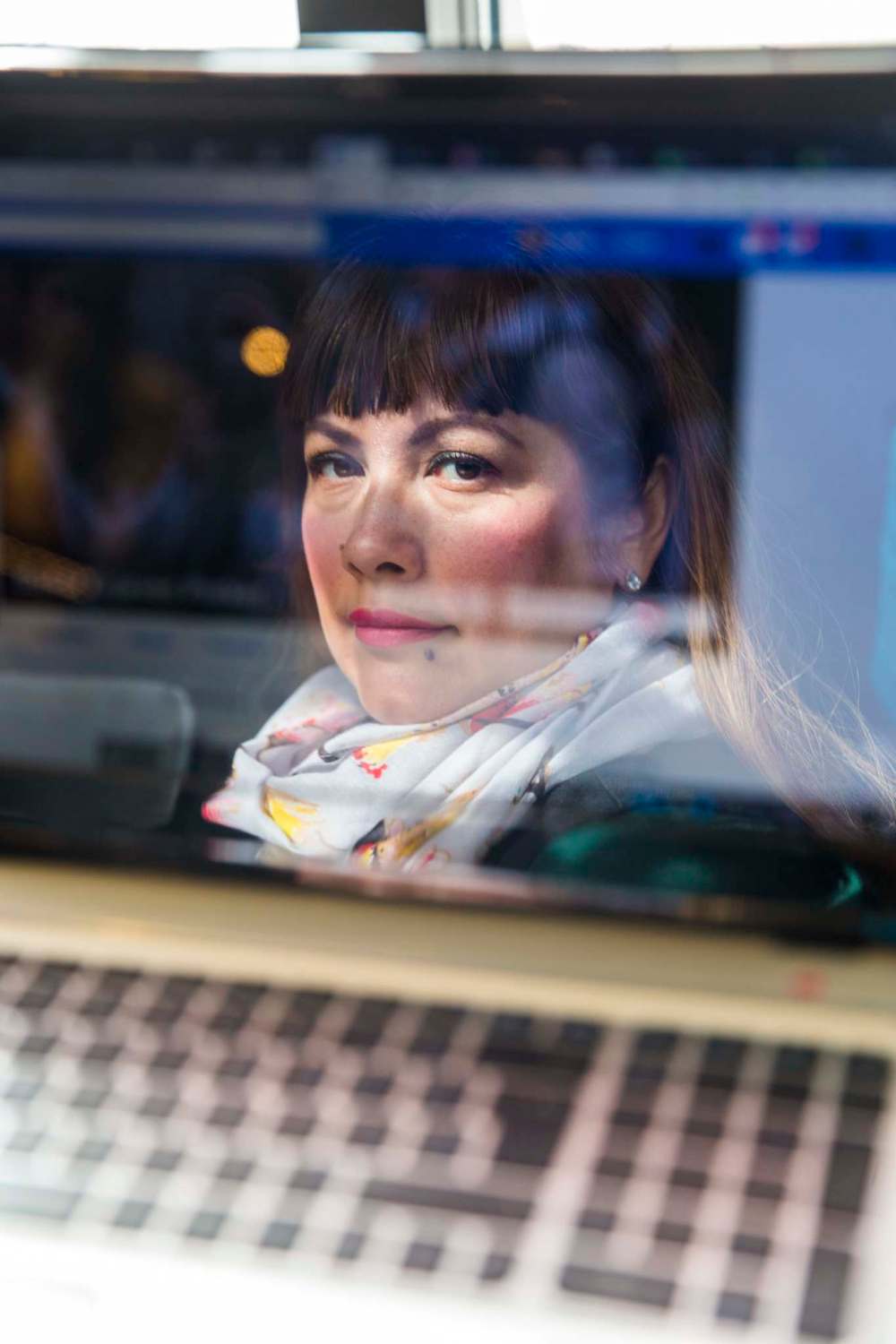
The most shocking part Ofodile found was seeing which advertising pages she was a target for and which had her information stored.
“Fall Out Boy has my information, I don’t know why,” she said, laughing and claiming she is not a fan of the American pop-rock band. “It’s kind of funny, but it’s scary at the same time.
“Even if you do delete your account, what guarantee do you have this information will be scrubbed away? Did they delete it or is it still on some server somewhere in Alaska that no one accesses, right? It’s a struggle to improve transparency and everyone should know what is out there. Everyone should know what is at stake. Everyone should be given the right to say yes or no.”
Winnipeg’s Susie Erjavec Parker is more Facebook-savvy than most. The social media and digital marketing specialist owns SPARKER Strategy Group and spends most of her professional life online.
Yet when Parker downloaded and opened her Facebook data archive this week — about 7,000 files dating back to 2007 — even she sounded surprised by the sheer volume.
“Wow, this is incredible,” she said. “So every video I’ve uploaded. Oh my goodness, this is crazy. Yeah, so every photo and even messages and things like that.”
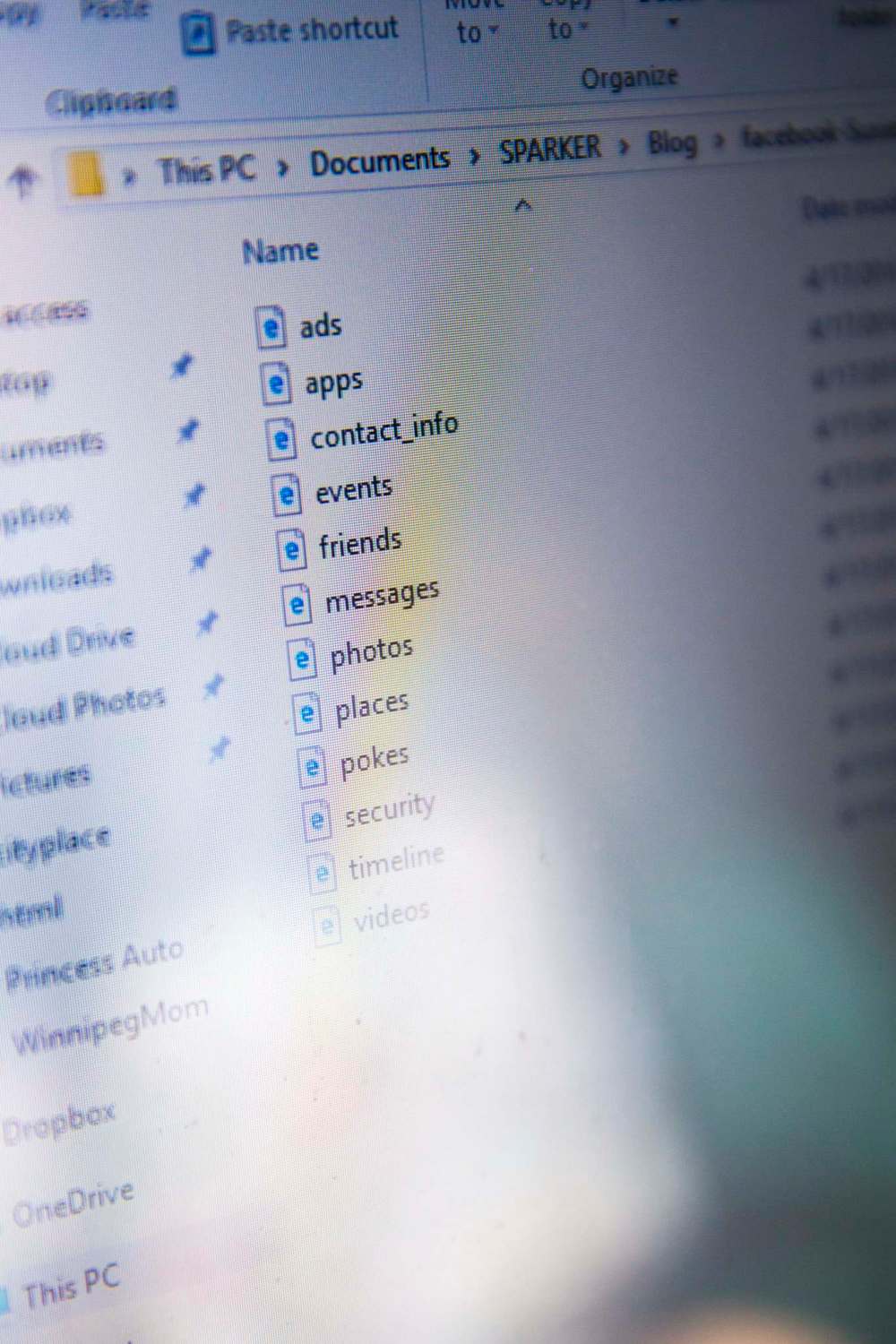
She clicked an audio file and didn’t recognize the person’s voice, then saw another section containing all her phone contacts — regardless of whether or not they are on Facebook.
“I never downloaded (Facebook Messenger) for this very reason. Because I didn’t want Facebook tracking who I talked to and how often I talked to them and all that weird stuff, right?” Parker said, adding a beat later: “Hmm, too late.”
Despite the record-keeping, Parker can’t see herself logging off Facebook permanently; it’s too much a part of her business. And she’s still a fan, notwithstanding its flaws.
Plus, Facebook doesn’t seem to be riding off into the sunset anytime soon.
“We are still in the infancy of social media. We’re (about) 10 years in, yes, but we’ve learned a lot in those 10 years. And I think that how social media and digital evolve in the next five to 10 years is going to be very different and we’ll possibly have some checks and balances to keep out the possibility of tampering and/or manipulation of things behind the scenes with regulation,” Parker said.
The European Union is already leaps ahead of North America when it comes to such rules. Next month, the EU will introduce its General Data Protection Regulation framework, requiring all companies to get citizens’ explicit consent before collecting data.
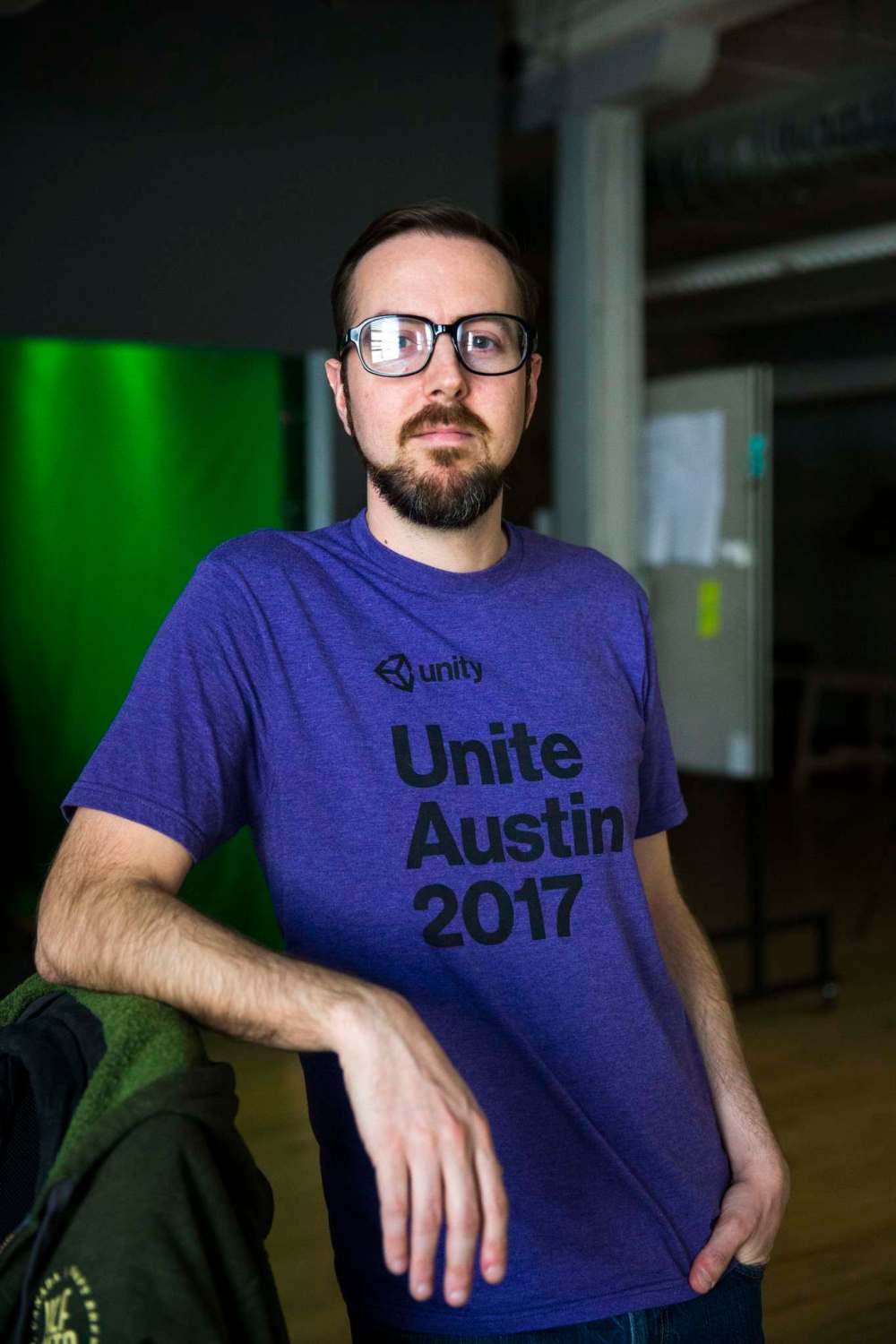
The regulations also include a Right to be Forgotten, which ensures those who want to have their information erased and no longer disseminated to third parties are in the clear.
John Luxford, co-founder of local virtual reality company The Campfire Union, would like to see similar standards implemented on this side of the Atlantic Ocean, though they may be tougher to abide by for the tech industry.
“I do think we need stronger regulations and it sounds like, as a developer, something like the European regulations could be a pretty big pain for people to comply with, from a technological standpoint,” he said. “But this I think is a good transition and reading through, their rights are actually pretty fair.”
Luxford downloaded his Facebook data archive recently, too, albeit for a stranger reason than most.
“I had a video I posted into a Facebook group years ago and the group was deleted, which meant the video went with it and I have no backup,” he explained.
But the rap video about bowling did not turn up in his data search. Luxford described the rest of his archive as “kind of boring.”
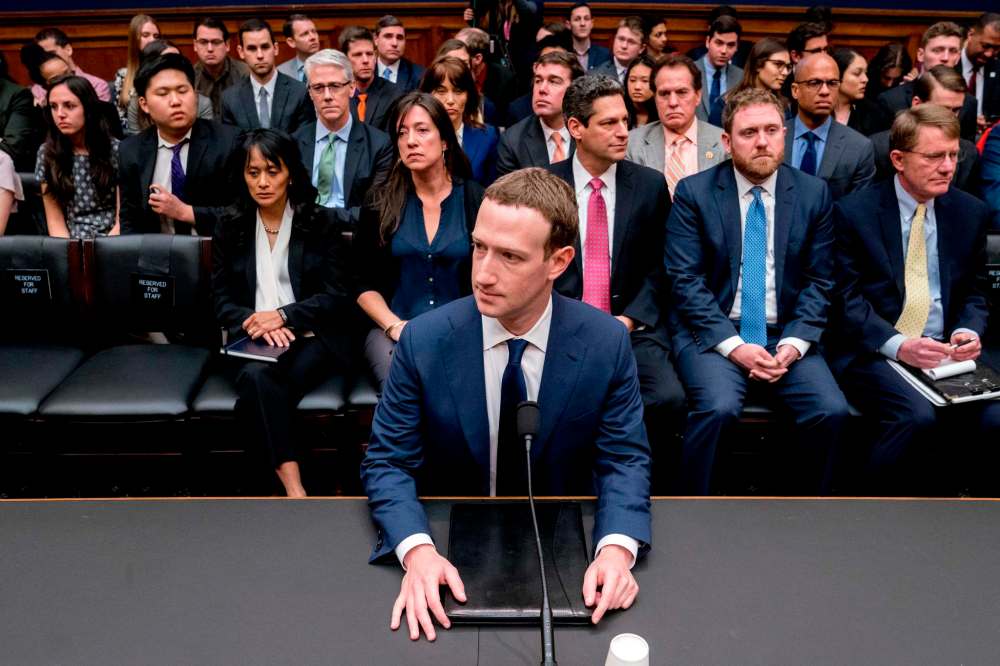
“It’s kind of alarming how much they track about you, but I don’t think it was altogether unexpected for me, being someone that works in tech,” he said. “The wider privacy conversation that’s happening is cool to see and I think (privacy) is a problem that every social network and many other apps you wouldn’t expect actually have the same issue with — mobile apps collecting your usage data, your health information, those kinds of things.
“(Facebook) is also kind of the first time we’ve ever thrown a massive social experiment like getting two billion people in a social network together and seeing what happens. That’s unprecedented. And I think there’s a lot of areas you probably couldn’t have been able to predict would have positive or negative impact.”
Dré Labre, a self-described futurist and founder of TBD Company in Toronto, said he hasn’t been on Facebook since about 2007. And he doesn’t see the social networking site sticking around indefinitely.
“I believe Facebook is over. I don’t think anyone under 30 really cares about it. And I also believe that the next generation of social networks need to be built on newer technologies like mixed reality, and not rely on surveillance capitalism to survive,” he said.
Labre thinks the next generation of social tools will have to add more value to users’ daily lives, as hands-free computing devices such as Amazon Alexa and Google Home are starting to do.
Still, he sees the danger in Facebook’s data breach for those who have virtually lived on the site for five, 10 or almost 15 years.
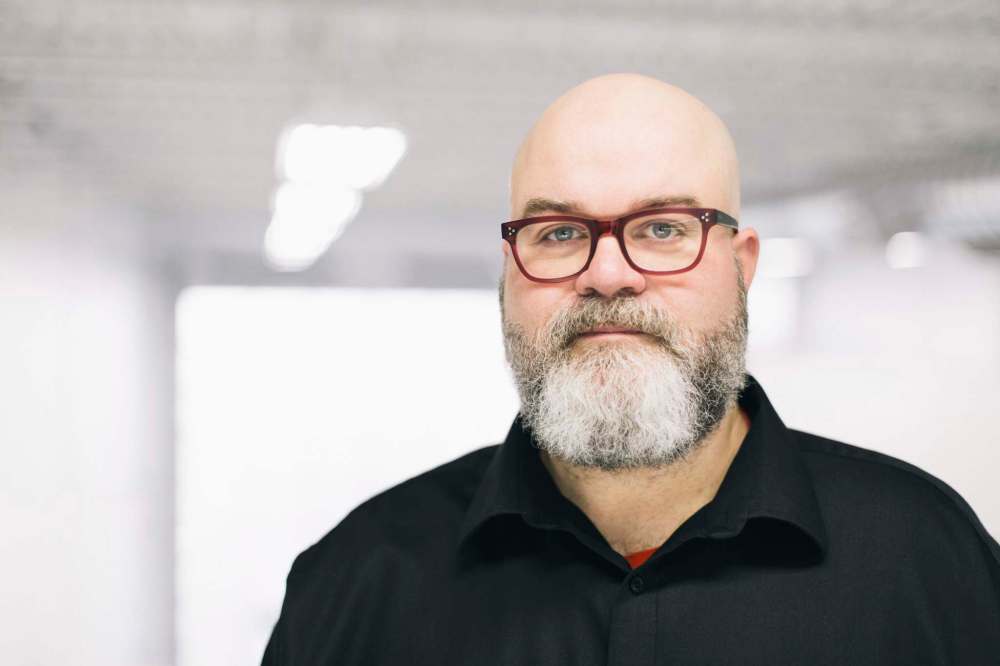
“That’s a significant portion of your life to have out there for people to take advantage of,” Labre said.
If Facebook were to die off, a new social network would spring up with a host of other (possibly worse) concerns, Gil pointed out.
“At least with Facebook, they are now under scrutiny to make changes. So at least we kind of have this hope that moving forward, things will change for them. Whereas if we jump ship and move to another new social media service, we might be back at square one again, doing the same things over and over again, 10 years later,” she said.
Luxford isn’t entirely convinced Facebook will be the go-to social network for much longer either, hence the need for sweeping data regulations.
“I wonder too if it’s just the nature of a social network if they just start falling out of tune with people, because we go with the trend. Young people are like, ‘Oh, I don’t want to be on the same one my parents are on,’” he said.
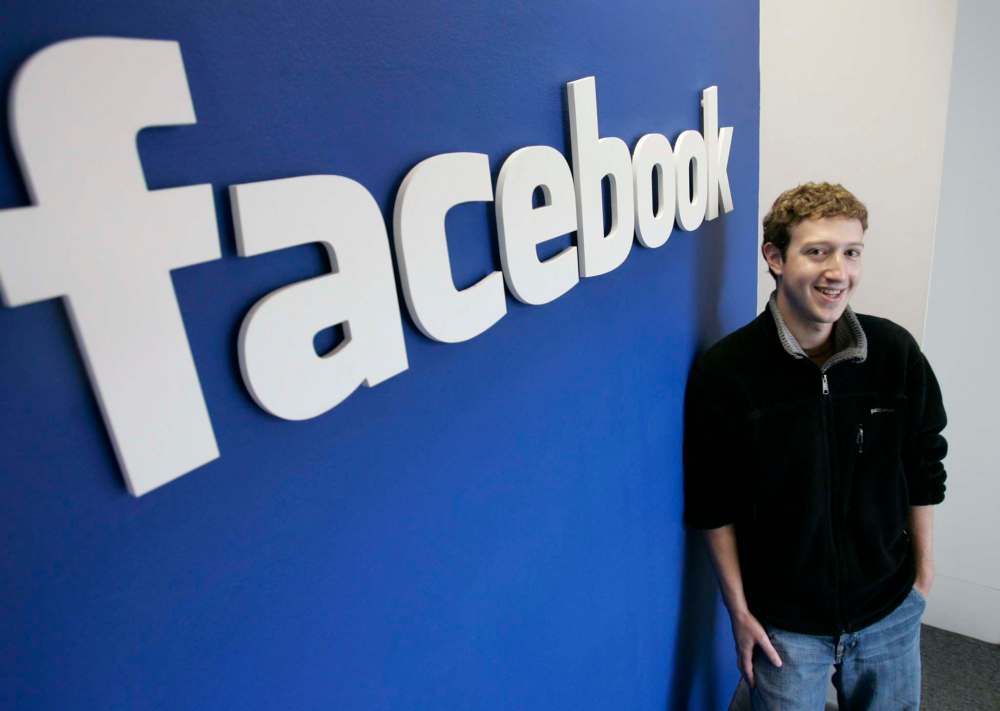
Most of the under-30 demographic would rather join a bridge club than be caught spending time on Facebook. Instagram is where the cool kids hang out; or at least they did before this story likely ruined it for them.
It’s worth noting Facebook now owns Instagram. Zuckerberg’s company bought the image-sharing app for about $1 billion in 2012.
So far Instagram has escaped much of the same public scrutiny Facebook has, though it can also track users through location tagging on photos, if that permission setting isn’t turned off.
Still, Instagram is seen as more of an unabashedly public marketplace, Parker said.
“Perhaps from a consumer point of view… (Instagram users) view it as a place where they go to look at photos or to see celebrity Instagram stories, without even realizing that they’re being marketed to at the same time,” she said.
So needless to say: buyer beware. Free social networks may not cost money, but as industry analysts have attested, “data is the new oil” — slippery, useful and expensive.

jessica.botelho@freepress.mb.ca
Twitter: @_jessbu


